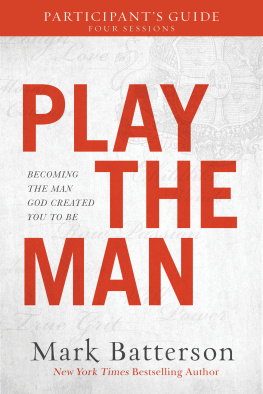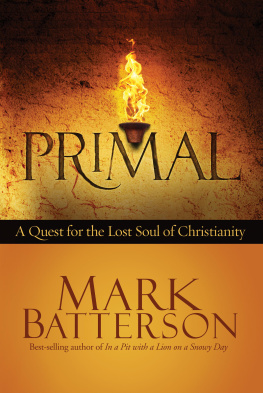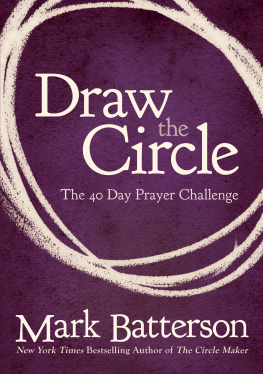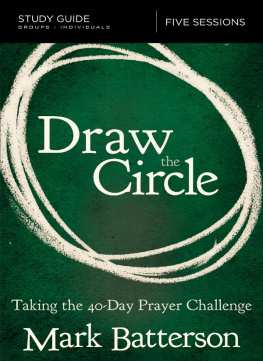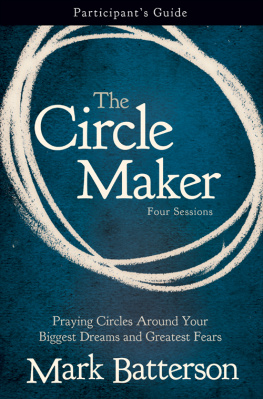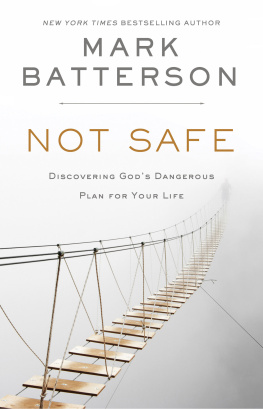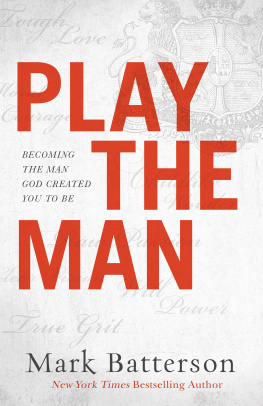Sign up for announcements about upcoming titles.
Introduction
February 23, 155 AD
Smyrna, Greece
Like a scene straight out of Gladiator , Polycarp was dragged into the Roman Colosseum. Discipled by the apostle John himself, the aged bishop faithfully and selflessly led the church at Smyrna through the persecution prophesied by his spiritual father. Do not be afraid of what you are about to suffer, writes John in Revelation 2:10. Be faithful, even to the point of death.
John had died a half century before, but his voice still echoed in Polycarps ears as the Colosseum crowd chanted, Let loose the lion! Then Polycarp heard a voice from heaven that was audible above the crowd:
Be strong, Polycarp. Play the man.
Days before, Roman bounty hunters had tracked him down. Instead of fleeing, Polycarp fed them a meal. Perhaps thats why they granted his last requestan hour of prayer. Two hours later, many of those who heard the way Polycarp prayed actually repented of their sin on the spot. They did not, however, relent of their mission.
Like Jesus entering Jerusalem, Polycarp was led into the city of Smyrna on a donkey. The Roman proconsul implored Polycarp to recant. Swear by the genius of Caesar! Polycarp held his tongue, held his ground. The proconsul prodded, Swear, and I will release thee; revile the Christ.
Eighty and six years have I served Him, said Polycarp. And He has done me no wrong! How then can I blaspheme my King who saved me?
The die was cast.
Polycarp was led to the center of the Colosseum where three times the proconsul announced: Polycarp has confessed himself to be a Christian. The bloodthirsty crowd chanted for death by beast, but the proconsul opted for fire.
As his executioners seized his wrists to nail him to the stake, Polycarp stopped them. He who gives me strength to endure the fire will enable me to do so without the help of your nails.
As the pyre was lit on fire, Polycarp prayed one last prayer: I bless you because you have thought me worthy of this day and this hour to be numbered among your martyrs in the cup of your Christ.
Using a spear, the executioner stabbed Polycarp through the flames. Polycarp bled out, but not before the twelfth martyr of Smyrna had lived out Johns exhortation: be faithful even to the point of death . Polycarp died fearlessly and faithfully. And the way he died forever changed the way those eyewitnesses lived. He did what the voice from heaven had commanded.
Polycarp played the man.
In this four-week video series, well explore what it means to play the man . Sessions 1 and 2 will focus on rediscovering what it means to be a manthe seven virtues of manhood. Sessions 3 and 4 are practical resources for fathers, helping you create a Discipleship Covenant and Rite of Passage for your sons.
Personal Reflection
In chapter 4 of the book, Mark shares the story of John Muir climbing a Douglas fir tree in the Sierra Nevada Mountains during a winter storm. Eugene Peterson called Muir an icon of Christian spirituality. Muir was a standing rebuke against becoming a mere spectator to life, preferring creature comfort to Creator confrontation.
How about you? Are you a creature of comfort, a creature of habit? Or are you seeking out Creator confrontation?
Muirs vision was saving the American soul from total surrender to materialism. Like John the Baptist before him, Muir saw himself as a prophet crying out in the wilderness, crying out for the wilderness. His goal? To immerse everyone he could in what he called mountain baptism.
Have you ever experienced a mountain baptism? If so, what did that experience teach you about yourself? How has it defined who you are, how you think about God, and how you approach life?
Take a few moments to reflect on your life journey.

